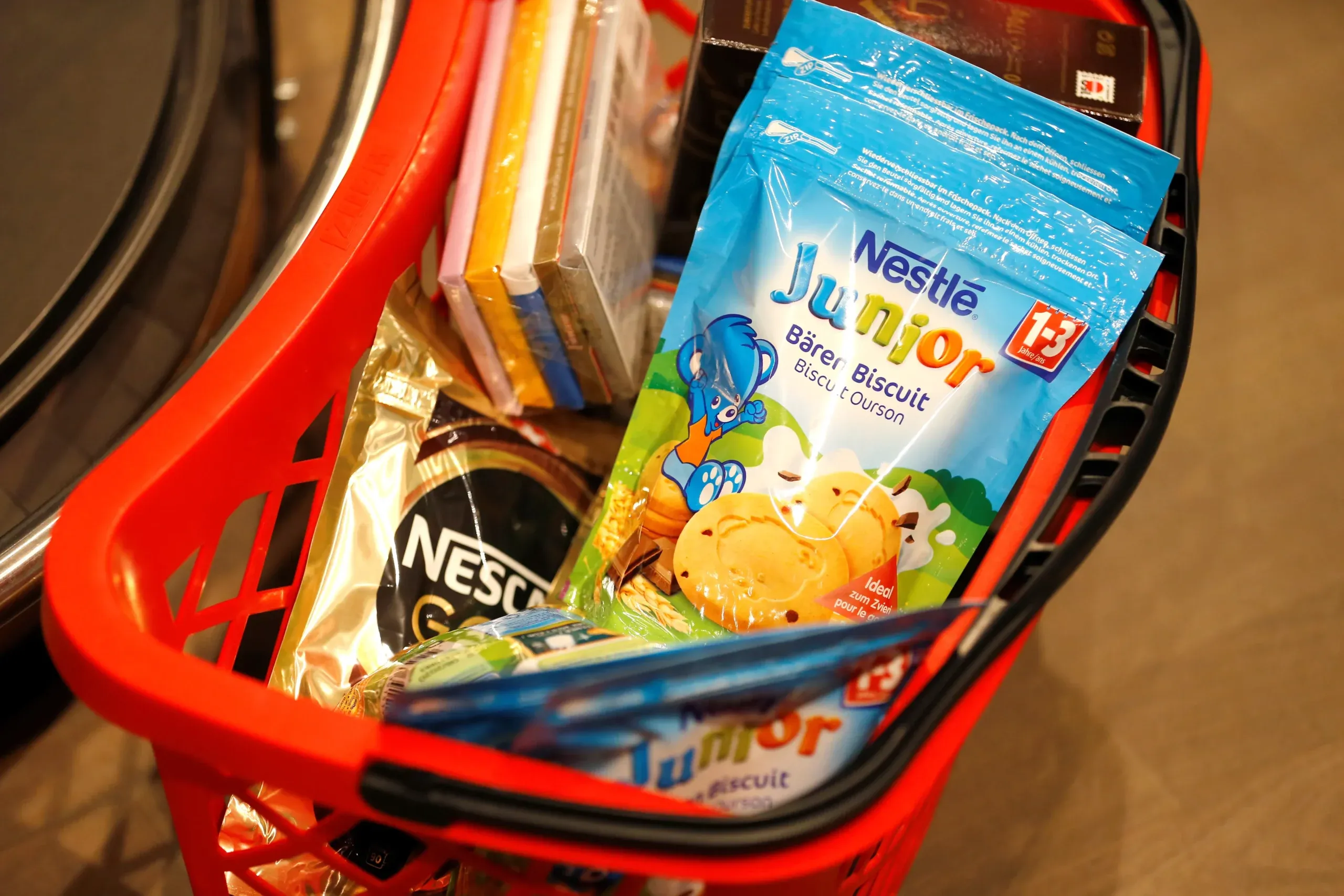
Nestle misses sales estimates as price hikes deter shoppers
By Richa Naidu
LONDON (Reuters) – Nestle reported full-year organic sales growth slightly below expectations on Thursday as the world’s biggest packaged food company continued to hike prices, prompting some shoppers to turn to competing brands.
Shares fell more than 4% in early London trade to hit their lowest in almost four years.
Investors worry the world’s biggest packaged food company will struggle to woo customers back to its top-selling products like KitKat chocolate bars and Nescafe coffee even as it slows the pace of price increases this year.
The Swiss firm also said it expects organic sales growth of around 4% in 2024, and a “moderate increase” in its underlying trading operating profit (UTOP) margin. The 2023 UTOP margin was 17.3%, up by 40 basis points in constant currency.
Organic sales, which exclude the impact of currency movements and acquisitions, rose 7.2% in the year ended Dec. 31, the company said. Analysts had on average expected organic sales growth of 7.4%.
“Nestle finishes the year on a disappointing note,” Bernstein analyst Bruno Monteyne said.
“Guidance for 2024 organic growth of 4.0% is below current consensus of 4.9% and guidance for a moderate margin increase may put pressure on the current (margin) consensus of 17.7%.”
However, Nestle’s net profit rose sharply by about 20% to 11.2 billion Swiss francs ($12.76 billion).
The packaged goods industry has for more than two years hit shoppers with higher prices, citing higher input costs that started with the COVID-19 pandemic and were exacerbated by Russia’s invasion of Ukraine.
Everything from sunflower oil to freight has become more expensive, taking a toll on global supply chains.
This quarter however companies have said 2024 prices will rise at a much slower rate.
“Pricing will be a lot lower this year than last year,” Nestle CEO Mark Schneider said on a call with journalists. “Growth going forward this year is going to be a lot more volume and mix based.”
SALES MISS
The results may fuel the debate among investors and analysts over whether companies have pushed price rises too far.
They have called on consumer goods companies to focus more on marketing and innovation, amid a cost of living crisis that is seeing retailers’ private label brands stealing market share.
Barclays analyst Warren Ackerman said the main questions for investors will be how Nestle can recover volumes and whether it has increased prices too much.
“The acid test will be improving market share momentum and innovation to drive (volume) in FY24,” he said.
Nestle’s full-year sales fell by 1.5% to about 93 billion Swiss francs, missing estimates of 93.68 billion Swiss francs.
Its full-year 7.5% price increases met the average analyst estimate. Real internal growth – or sales volumes – for the period fell 0.3% versus expectations of a 0.1% decline.
Sales volumes in the fourth quarter turned positive, rising 0.4%.
Rival packaged food company Unilever, which slowed price hikes notably in the fourth quarter, also reported a return to higher volumes for that period.
($1 = 0.8777 Swiss francs)
(Reporting by Richa Naidu; Editing by Tom Hogue, Varun H K, Michael Perry and Jan Harvey)


